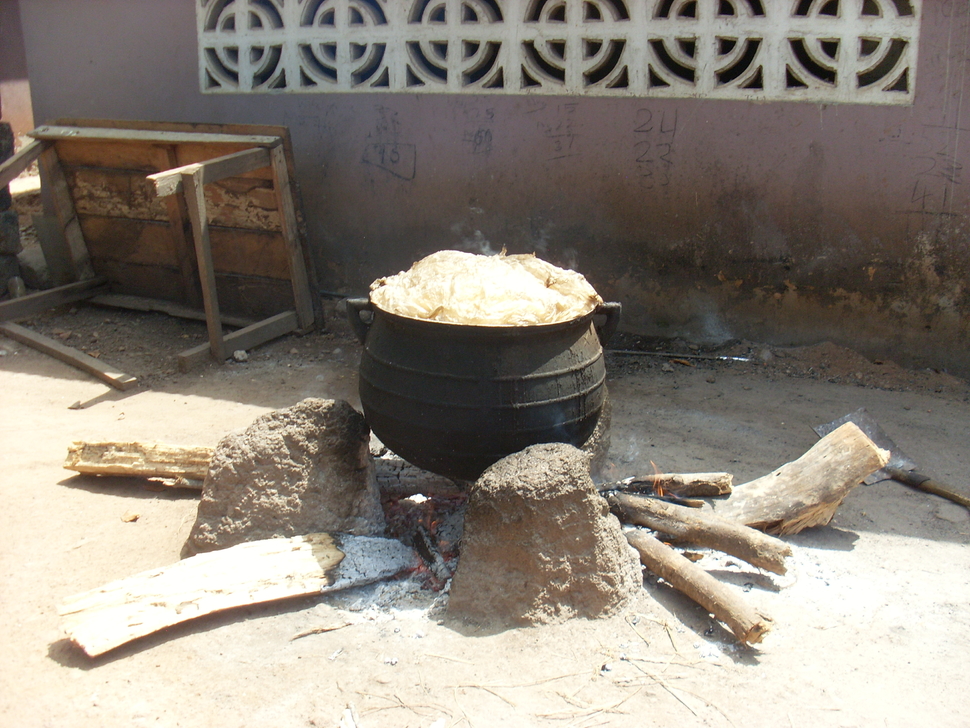Worldwide nearly three billion people rely on open fires or traditional cookstoves for
cooking every day (Global Alliance for Clean Cookstoves, 2015). This method of cooking
has severe consequences for their health, the local livelihood and the environment.
Nowadays it is the fifth leading cause of death and the fourth leading cause of diseases
in developing countries (WHO, 2014).
Also in Ghana a great majority is still using traditional three stone fires and 22 million
people use solid fuels to do so (Energy Commission, e.a., 2013). This causes more than
13000 deaths in Ghana per year. The impact becomes even greater when the fires are
used all day long, which is the case for Ga and Fante kenkey makers in the Ejisu-Juaben
district in Ghana. Kenkey is a staple dish, originating from the Ga and Fante inhabited
regions in West Africa, and takes more than ten hours to prepare. The kenkey makers,
mainly women, cook large quantities of kenkey and sell small portions to households
in the nearby areas. Therefore they are exposed to three stone fires fuelled by wood
all day. There are three severe consequences. The toxic smoke of the fire affects their
health. Secondly the great amount of time they spend on collecting wood and inefficiently
cooking affects the local livelihood. Thirdly the air pollution and deforestation
affects the environment.
Although the Ghanaian government is stimulating the catalysation of the market for
clean cooking solutions, there are currently no improved wood fuel cookstoves on the
market that cater the needs of the rural population, including kenkey makers. To improve
their conditions, the Kumasi Institute of Tropical Agriculture (KITA) launched the
clean cookstove project on developing clean wood fuel cookstoves specifically for the
kenkey makers in the Ejisu-Juaben district. The internship of this year is a follow up of
last year’s internship and will be executed by a team of three TU Delft students and
three KITA students. The project includes three overlapping phases: a research phase,
a prototyping phase and a sales phase. A clear overview of the project and the results
of all phases is described in this report. Furthermore it gives an impression of the Ghanaian
culture and it can be used for the continuation of the project.
Preface
A short introduction to the Clean Cookstove Project
